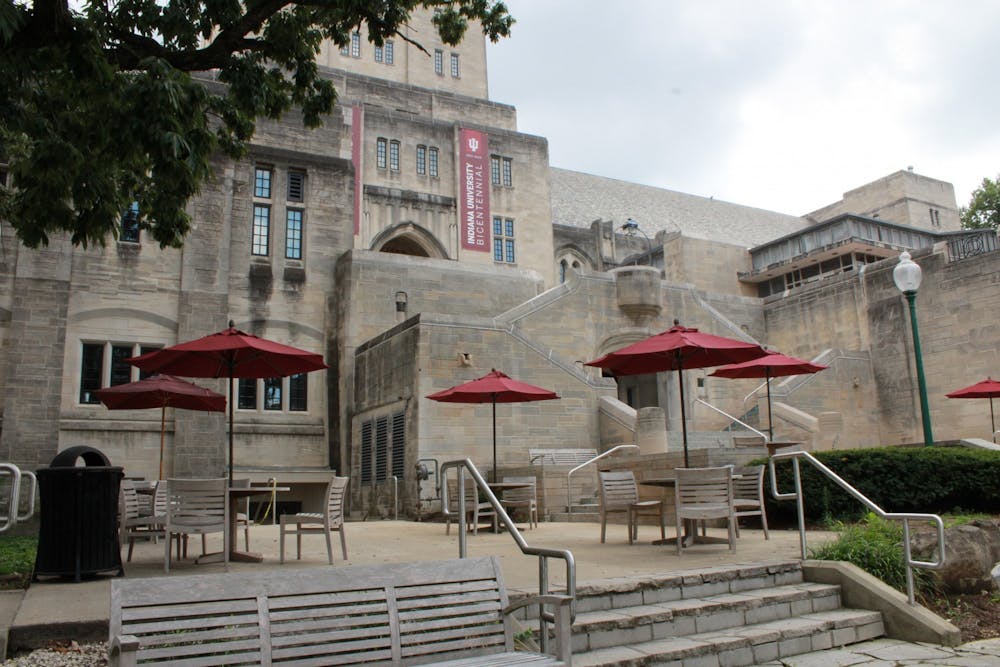I was walking to get my COVID-19 mitigation test after physics class in Swain West Hall March 18 around noon, when a black car with more than three white boys pulled up to me and yelled racial slurs.
My first instinct when they slowed down was that it was someone I knew, and they wanted to say hello. The driver rolled down his window and started screaming racist words at me.
“You are shit,” the guy in the driver’s seat yelled. Someone in the back of the car said the N-word. They all laughed.
[Related: What wasn’t said: How racism shaped one IU student’s college experience]
I am an international student from Zambia who has lived in this country for less than three months. I was shocked. No one has ever been abusive to me because of the color of my skin because I come from a country that is more than 95% Black.
I was scared. I am scared. I have read stories about Black people who are killed for just existing. Until last week, these were just mere stories — until they hit home.
I was verbally abused in broad daylight.
I can not stop my mind from thinking what if it was at night and they had a weapon. What would the story be? Would I be added to the list of Black people physically abused or killed for merely existing?
In 2019, a similar situation happened on IU’s campus where an unknown man harassed Alice Aluko, a junior at IU, when she was walking toward the bus stop near Third Street and Indiana Avenue.
“I felt more betrayed by the people who were around and they did not do anything to stop him because they were all white and I was the only Black person,” Aluko said.
The most upsetting part is when this incident happened to me, there were people around walking. No one said anything or tried to talk to me.
They continued on their normal routines.
I am not from this country — I can leave. But many African Americans who know this country to be home can’t.
IU freshman Lauren Johnson said this semester someone in a red truck screamed the N-word at her when she was taking a walk with a friend on campus.
“I think I expect it to happen even though I shouldn't,” Johnson said. “This makes me question what kind of community this is if we have to be scared to take a walk on campus because someone might say or do something.”
IU sophomore Marcellous Gregory said he was called the N-word on Kirkwood by an unknown man in the fall of last year.
“I was just getting out of the store minding my own business when he called me the N-word.” Gregory said. “I was not offended because I expect racism at a PWI.”
Racial violence is normal for minorities in the communities we are supposed to love.
It is not enough to post on social media or send emails about supporting minority communities.
Minority communities need the people with privilege in society to speak up and call out racism when you see it occur, we need you to check your own biases, we need you to make our community safe for us to just exist.
To breathe.
Being part of the Wells Scholars Program, the director of my scholarship, Christoph Irmscher, reached out to me after he found out about the racial incident and shown great support over the past few weeks. One of my professors and dean of the school law also submitted a care referral.
Cedric Harris, director of bias response and senior student case manager, offered his support after the care referrals were filed and told me he will look into the matter.
Most of the support I have received is because of my scholarship. I am grateful to have them.
The assistant director of international services, John Wilkerson, has also been very supportive because this incident made me feel very unwelcome in this country.
Many students of color on campus do not have this kind of support, so it is important that these racial bias incidences do not occur.
The bystander intervention curriculum that all freshman students have to take should have a focus on what to do in a situation where you notice racial bias.
Minority students want to be safe.






